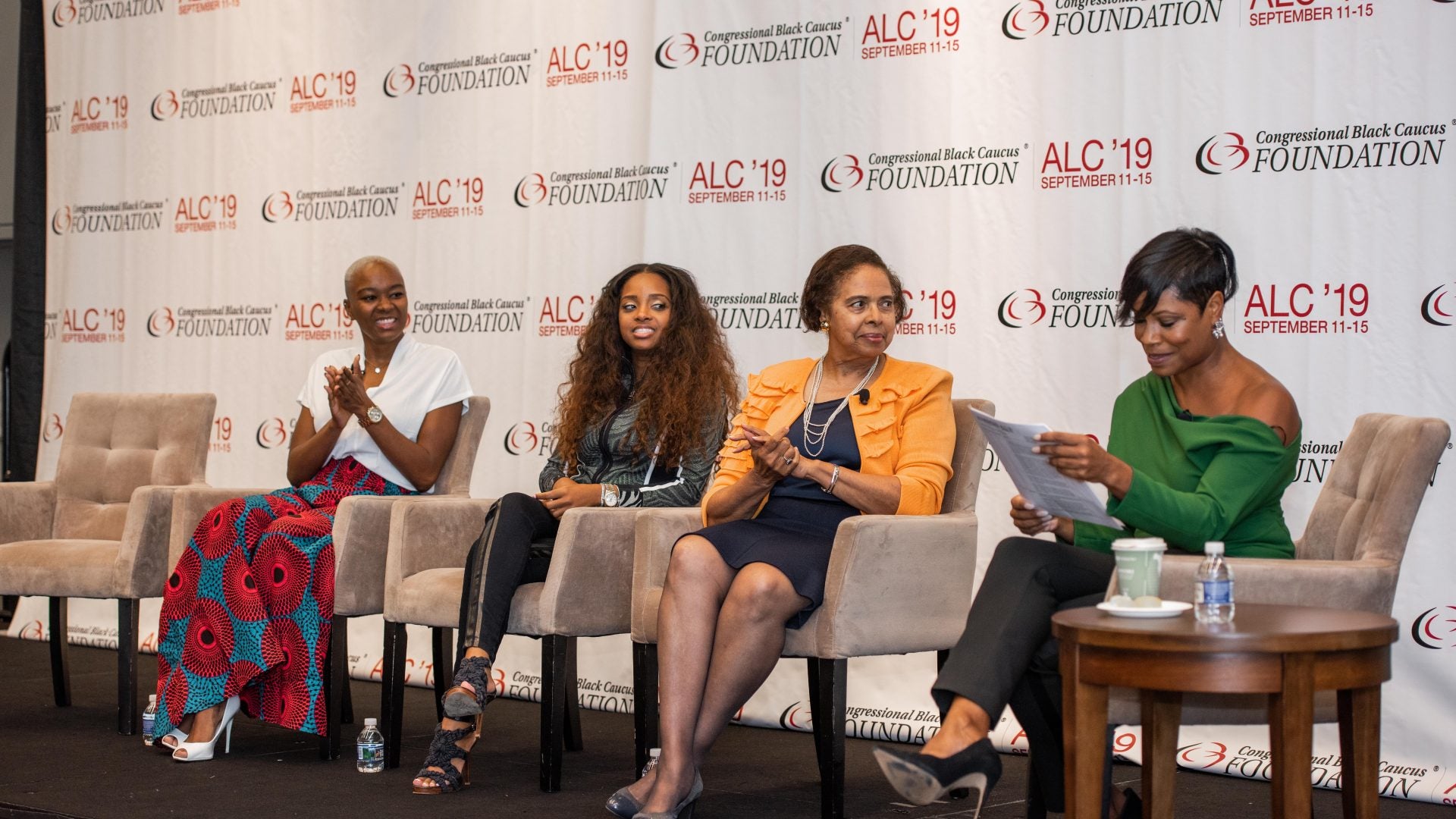
Black women’s labor and ingenuity in America have helped shape movements and advance change. Yet, historically, these contributions have been erased, or the credit and glory given to someone else.
At the “Sojourner Truth Town Hall: Bridging Pathways for Black Women in Leadership & Politics,” the dialogue centered around ways to more effectively leverage that collective power.
“Any good thing that has happened in the world came through a Black woman,” said moderator Monique Pressley to the near-capacity crowd inside the Walter E. Washington Convention Center during the Congressional Black Caucus.
Yet Pressley, a trial attorney and media host, asked the audience of mostly Black women: “Why do we have to fight to be heard?” and “What is going to change the game and shift the paradigm?”
Evoking the spirit of 18th Century freedom fighter, Sojourner Truth, ALC `19 comes as America marks 400 years of kidnapped Africans landing in English North America in 1619.
Nearly a dozen invited speakers—ranging from Melanie Campbell, facilitator of the Black Women’s Roundtable, to Shané Harris, Executive Director of the Prudential Foundation, discussed African American women as a force for change. Panelists delved into economic advancement, gender and pay equity, healthcare access, criminal justice, mental health and more.
Dr. E. Faye Williams, Esq., president of the National Congress of Black Women, was a key organizer of the 1995 Million Man March, but has spent her career championing Black woman. “We must understand our power,” Williams said, and bear witness. “We have to tell our sister’s stories. We have to lift each other up.”
Ifeoma Ike, Esq., an activist and co-founding Principal of the social impact firm, Think Rubix, agreed. But she said moving the Black political and social needle even further, will require a more “radical” and “transformative” agenda.
“Being radical is very intentional,” she said. As Black and Brown people experience resurgent racism, police brutality and inequities, she believes greater urgency is necessary, particularly with the 2020 presidential election looming. “Do we want reform. …or do we want revolution?”
Tamika D. Mallory gained renown as a leader of the historic Women’s March in 2017, and for staging another march against the NRA around gun violence. From her work with the National Action Network, to the White House during the Obama Administration, she’s advocated for change around health care to police misconduct.
Yet Mallory has also weathered controversies (one involves her refusal to denounce Min. Louis Farrakhan) and admitted being a disruptor is tough. “I had some people who I thought were friends who now don’t speak to me.”
Still, Mallory is pushing forward. She recently co-founded a new organization “Until Freedom,” and vows to continue fighting for the marginalized, impoverished, the voiceless. If criticism comes, she will take it. “I’m willing to be that person,” she said.
Tiffany D. Loftin, National Director, Youth and College Division of the NAACP, is building the next generation of Black civil rights warriors. “We’re bringing more young people into the NAACP,” she said of the legacy organization, founded in 1909. Efforts include training elementary, high school and college students around the country in advocacy. “We have 32 youth chapters across the country, all in good standing.”
A second panel on building a strong political infrastructure included Waikinya Clanton of the Democratic National Committee (DNC), and L. Joy Williams of Higher Heights of America, which works to help elect Black women candidates. Latrice Walker, a New York State Assembly Member, was also invited to share remarks.
“One of our priorities at the DNC is changing the way we engage with communities by becoming less transactional and more relational,” said Clanton,
Clanton, who was also Senior Advisor to the DNC Chairman, Tom Perez, created “Seat at the Table” a national initiative to engage Black women.
“We are focusing our conversations with Black women on the issues that are most important to them and then we turn that conversation into action by connecting them with leaders locally who can positively influence change,” she said.
David A. Hinson, a former Obama administration appointee who in July became the new president/CEO of CBCF, praised the “intelligent, savvy, focused and beautiful Black women,” of America, noting that “sisters” wield plenty of power.
“It will be Black women who actually elect the next president of the United States,” he said to rousing applause.